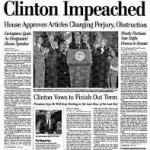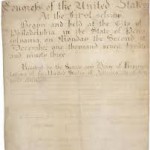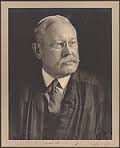The Constitution‘s Impeachment Clause regarding the president and all civil officers of the United States is in Article II and reads: “The President, Vice President and all civil officers of the United States, shall be removed from office on impeachment for, and conviction of, treason, bribery, or other high crimes and misdemeanors.” The Constitution’s Article […]
11th Amendment Overrules the Supreme Court
The Supreme Court interprets the Constitution. If the Court makes an unpopular decision, the recourse is an amendment. This happened with the Eleventh Amendment. During the Revolutionary War a South Carolina merchant, Captain Robert Farquhar sold supplies to the State of Georgia on credit. Following the War, Georgia refused to pay Farquhar asserting that he […]
Constitution’s “Origination Clause”: Why Revenue Bills Start in the House, Part 2
For Drafters of the Constitution, a vexing problem was to establish a government that would give life to the philosophies of the Declaration of Independence and meet the practical political considerations of merging diverse states of differing size and traditions into a nation. Among the solutions was the Constitution’s Origination Clause in Article I, Section […]
The US Constitution and Local Government
Discussions of the US Constitution tend to focus upon the actions of the president, congress and the Supreme Court. While these are consequential, often overlooked is the impact of the Constitution on the actions of local government. Most Americans are aware of the presidential oath of office required of a new president before he begins […]
Courageous NSA Ruling by Judge Leon Respects Privacy and Fourth Amendment
On December 16, 2013 US District Court Judge Richard Leon took on arguments[1] that over the years have been used to expand government intrusion into American life in ways that would have left James Madison “aghast”.[2] His opinion in Klayman v. Obama finds much of the National Security Agency’s (NSA) surveillance collection of “telephony metadata” […]
An Agency Theory of The Constitution as a Power of Attorney
“[W]e must never forget that it is a constitution we are expounding.” Chief Justice John Marshall, McCulloch v. Maryland (1819) Reviewing the 200 years of “expounding” the Constitution has undergone can be quite confounding. There have been hundreds of Supreme Court opinions. Legal scholars, lawyers, and judges engage in continuing debate over the proper method […]
Title Insurance: Buyers & Owners Policies
It is critical when making a real estate investment that the owner knows he owns the property free from any claims by third parties. When a buyer contracts to buy a home, he wants to be certain that the seller can legally sell it. Ownership of real estate can be very complex. There can be […]
Fourth Amendment Origins: Court Battles Lead to Revolution
“The house of every one is to him as his castle and fortress, as well for his defence against injury and violence as for his repose.” Sir Edward Coke,[1] 1604 “They who can give up essential liberty to obtain a little temporary safety, deserve neither liberty nor safety.” Benjamin Franklin,[2] 1755 “… one of the most essential branches […]
Entrapment as an Affirmative Defense to Criminal Charges
“Entrapment” may be a defense to criminal prosecution if a government agent induced a person to commit a crime which the person was otherwise unlikely to commit. Investigation and prosecution of certain crimes can be difficult unless members or agents of law enforcement participate in elements of the prohibited activity. Examples are drug sales, prostitution […]















What a President Can Legally Do With a Pen and a Phone, Part I
President Obama brought national attention to the idea of running the country by “executive order” with his now famous: “I’ve got a pen and I’ve got a phone”. He made that intent clear during the 2013 and 2014 State of the Union Addresses as well: “… if Congress won’t act soon … I will… I will […]